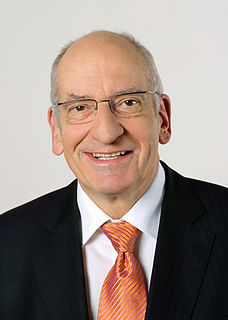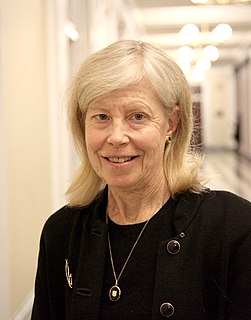A Quote by Mildred Dresselhaus
When I came to M.I.T. in 1960, only 4 percent of the students were female. Today, it's about 40 percent of undergraduates. At Lincoln Lab, they had 1,000 men and two women. But we had a very good boss, and he treated us just like everybody else.
Related Quotes
Since the 1950s (until the early 1990s), girls in Kabul and other cities attended schools. Half of university students were women, and women made up 40 percent of Afghanistan’s doctors, 70 percent of its teachers and 30 percent of its civil servants. A small number of women even held important political posts as members of Parliament and judges. Most women did not wear the burqa.
We started to have more women and little girls in our audience, where it started to be 40 percent female that sat in our live audience. So I think, when that was happening and the women were stepping up and saying, 'Hey we can do what the men do,' and then you saw it on a reality show, it was just inevitable for us to have this women's evolution.
If you look at figures, we have a good supply of doctors in Switzerland. They always say that in the future we shall have a lack of home doctors, family doctors. I'm not sure of that, but we have a problem of formation. Every year there [are] about 1,000 students beginning medical studies, and at the end of the formation there are only 600 young people getting the diploma. It means that about 40 percent of the students fail during the studies, although there is a selection at the beginning. Forty percent is too much as failure, so probably there is a problem in the formation, education.
As Deborah Rhode describes, “When 1,100 Michigan elementary students were asked to describe what life would be like if they were the opposite sex, over 40 percent of the girls saw advantages to being male; they would have better jobs, higher incomes, and more respect. Ninety-five percent of the boys saw no advantage to being female, and a substantial number thought suicide would be preferable.”
In the U.S., you couldn't have job creation with interest rates of 30 or 40 percent. They had a philosophy that said job creation was automatic. I wish it were true. Just a short while after hearing, from the same preachers, sermons about how globalization and opening up capital markets would bring them unprecedented growth, workers were asked to listen to sermons about "bearing pain." Wages began falling 20 to 30 percent, and unemployment went up by a factor of two, three, four, or ten.





































